What You Need To Know About Parasites and Worms – A Guide to Common Human Infections and 8 Dangers to Avoid
Understanding Parasites and Worms: A Guide to Common Human Infections
Overview
Parasites and worms that infect humans can cause a range of diseases and health problems. These organisms thrive by living off their hosts, often causing discomfort, illness, and in severe cases, even death. Understanding these parasites, how they infect humans, and how to prevent and treat these infections is crucial for public health. If you are alive, eating, breathing, there is an extremely high likelihood that you are infected with parasitic worms. In this article, we will explore some of the most common parasites and worms that infect people.
- Protozoa: These single-celled organisms can cause diseases such as malaria, toxoplasmosis, and giardiasis. Malaria, transmitted through the bites of infected mosquitoes, is a major global health problem, particularly in tropical and subtropical regions. Toxoplasmosis is often contracted from contaminated food or water, or through contact with infected cat feces. Giardiasis is typically contracted through contaminated water.
- Helminths (Worms): These are multicellular parasites that infect humans through various routes. Some common types include:
- Roundworms (Nematodes): Ascaris lumbricoides is a roundworm that infects humans through contaminated food or water. It can cause a condition known as ascariasis, which can lead to malnutrition, intestinal blockages, and impaired growth in children.
- Tapeworms (Cestodes): Taenia solium, the pork tapeworm, is transmitted to humans through the consumption of undercooked pork. It can cause cysticercosis, a potentially serious infection that can affect the brain, muscles, and other tissues.
- Flatworms (Trematodes): Schistosoma spp. are flatworms that cause schistosomiasis, a disease transmitted through contact with contaminated freshwater. Schistosomiasis can lead to organ damage and other complications if left untreated.
- Ectoparasites: These parasites live on the surface of the host’s body. Examples include lice, fleas, and ticks, which can transmit diseases such as Lyme disease and typhus.
Parasitic infections can cause a wide range of symptoms, including abdominal pain, diarrhea, nausea, fatigue, and skin rashes. In severe cases, these infections can lead to organ damage, neurological problems, and even death.
Prevention of parasitic infections involves practicing good hygiene, such as washing hands thoroughly, avoiding contaminated food and water, and practicing safe sex. In areas where certain parasites are endemic, preventive measures such as taking antiparasitic medications or using insect repellent may be recommended.
Treatment of parasitic infections typically involves antiparasitic medications, which can vary depending on the type of parasite involved. In some cases, surgical intervention may be necessary to remove parasites or cysts.
The Dangers of Parasites and Worms
Parasites and worms that infect people can pose significant dangers to human health. These organisms can cause a range of symptoms and complications, from mild discomfort to severe illness and even death. Some of the dangers associated with parasitic infections include:
- Nutritional Deficiencies: Parasites can interfere with the absorption of nutrients in the intestines, leading to nutritional deficiencies. This can result in malnutrition, stunted growth (especially in children), and impaired immune function.
- Organ Damage: Certain parasites, such as Schistosoma spp., can cause damage to organs such as the liver, intestines, bladder, and lungs. This damage can lead to serious complications, including organ failure.
- Anemia: Parasitic infections such as hookworms and malaria can cause anemia, a condition characterized by a low red blood cell count. Anemia can lead to fatigue, weakness, and other complications.
- Neurological Complications: Infections with certain parasites, such as the pork tapeworm (Taenia solium), can lead to neurological complications. Cysticercosis, a condition caused by the larvae of the pork tapeworm, can affect the brain and spinal cord, leading to seizures, headaches, and other neurological symptoms.
- Skin Problems: Parasitic infections can cause a variety of skin problems, including rashes, itching, and sores. Ectoparasites such as lice and scabies can also cause skin irritation and infections.
- Transmission of Other Diseases: Some parasites, such as ticks and mosquitoes, can transmit other diseases in addition to the parasite they carry. For example, ticks can transmit Lyme disease, while mosquitoes can transmit malaria and other mosquito-borne illnesses.
- Complications in Pregnancy: Pregnant women infected with certain parasites, such as Toxoplasma gondii, can pass the infection to their unborn babies, leading to congenital disabilities or miscarriage.
- Death: In severe cases, parasitic infections can lead to death. Malaria, for example, causes hundreds of thousands of deaths each year, mostly in young children in sub-Saharan Africa.
It is important to note that the dangers associated with parasitic infections can vary depending on the type of parasite involved, the severity of the infection, and the overall health of the individual. Prompt diagnosis and treatment are essential for preventing complications and improving outcomes.
 Diseases caused by parasitic worms
Diseases caused by parasitic worms
Parasites and worms can cause a wide range of diseases in humans, depending on the type of parasite and the location of the infection. Some common diseases caused by parasite and worm infections include:
- Malaria: Caused by Plasmodium parasites transmitted through the bites of infected mosquitoes. Malaria can cause fever, chills, and flu-like symptoms, and in severe cases, it can lead to organ failure and death.
- Toxoplasmosis: Caused by the Toxoplasma gondii parasite, which is often transmitted through contact with cat feces or contaminated food or water. Toxoplasmosis can cause flu-like symptoms in healthy individuals but can be severe in people with weakened immune systems or pregnant women, potentially leading to birth defects.
- Giardiasis: Caused by the Giardia intestinalis parasite, which is typically transmitted through contaminated water. Giardiasis can cause diarrhea, abdominal pain, and other gastrointestinal symptoms.
- Ascariasis: Caused by the roundworm Ascaris lumbricoides, which is transmitted through contaminated food or water. Ascariasis can lead to malnutrition, intestinal blockages, and impaired growth, especially in children.
- Hookworm Infection: Caused by hookworms that penetrate the skin, usually through contact with contaminated soil. Hookworm infection can cause anemia and abdominal pain.
- Schistosomiasis: Caused by Schistosoma parasites that penetrate the skin when in contact with contaminated freshwater. Schistosomiasis can cause abdominal pain, diarrhea, and liver damage.
- Cysticercosis: Caused by the larvae of the pork tapeworm, Taenia solium. Cysticercosis can affect the brain, muscles, and other tissues, leading to seizures, headaches, and other neurological symptoms.
- Lymphatic Filariasis: Caused by filarial worms transmitted through mosquito bites. Lymphatic filariasis can lead to lymphedema, elephantiasis, and other severe complications.
- Scabies: Caused by the Sarcoptes scabiei mite, which burrows into the skin. Scabies can cause intense itching and skin rashes.
- Lice Infestation: Caused by parasitic lice that feed on human blood. Lice infestation can cause itching and skin irritation.
These are just a few examples of the diseases caused by parasite and worm infections. Many other parasitic infections can affect humans, each with its own set of symptoms and complications.
The link between parasites, worms, and cancer
There is growing evidence suggesting a link between certain parasites, worms, and cancer. Chronic infections with certain parasites have been associated with an increased risk of developing certain types of cancer. Here are some examples of parasites and worms that have been linked to cancer:
- Helicobacter pylori and Gastric Cancer: Helicobacter pylori is a bacterium that infects the stomach lining and is a major risk factor for gastric cancer. Chronic infection with H. pylori can lead to inflammation of the stomach lining (gastritis), peptic ulcers, and in some cases, gastric cancer.
- Schistosoma haematobium and Bladder Cancer: Infection with the parasitic worm Schistosoma haematobium is a known risk factor for bladder cancer. The parasite’s eggs can become lodged in the bladder wall, leading to chronic inflammation and an increased risk of cancer.
- Opisthorchis viverrini and Clonorchis sinensis and Liver Cancer: Liver flukes such as Opisthorchis viverrini and Clonorchis sinensis are parasites that infect the bile ducts of the liver. Chronic infection with these parasites is a major risk factor for cholangiocarcinoma, a type of liver cancer.
- Human Papillomavirus (HPV) and Cervical Cancer: While not a parasite or worm, HPV is a virus that is transmitted through sexual contact and is a major cause of cervical cancer. Chronic infection with high-risk strains of HPV can lead to the development of cervical cancer.
- Epstein-Barr Virus (EBV) and Lymphomas: EBV is a virus that infects B lymphocytes and is associated with several types of lymphomas, including Burkitt lymphoma and Hodgkin lymphoma.
The mechanisms by which these parasites and viruses contribute to cancer development are complex and may involve chronic inflammation, immune suppression, and the release of carcinogenic substances. It’s important to note that not everyone infected with these parasites or viruses will develop cancer, and other factors such as genetic predisposition and environmental exposures also play a role.
Sources of Infection
Parasites and worms can be found in various foods, particularly those that are raw or undercooked. Eating contaminated foods can lead to parasitic infections. Here are some foods that may contain parasites and worms, along with the types of parasites they may harbor:
- Undercooked Meat: Eating undercooked or raw meat, particularly pork, beef, and fish, can expose you to parasites such as Toxoplasma gondii (found in pork), Trichinella spiralis (found in pork), and Anisakis (found in fish).
- Raw or Undercooked Seafood: Fish and shellfish, such as sushi, sashimi, and ceviche, can harbor parasites like Anisakis and Diphyllobothrium latum (fish tapeworm).
- Contaminated Fruits and Vegetables: Fruits and vegetables can become contaminated with parasites through contact with soil, water, or fecal matter. Parasites such as Toxoplasma gondii and Cyclospora cayetanensis can be found on fruits and vegetables that are not properly washed or cooked.
- Contaminated Water: Drinking untreated or contaminated water can expose you to parasites such as Giardia lamblia and Cryptosporidium spp., which can cause gastrointestinal infections.
- Improperly Processed or Stored Foods: Foods that are not processed or stored properly can become contaminated with parasites. This can include canned foods that were not properly sealed, as well as foods that were left at room temperature for too long.
To reduce the risk of parasitic infections from food, it is important to cook foods thoroughly, especially meats and seafood. Additionally, washing fruits and vegetables thoroughly before eating, and avoiding drinking untreated water, can help prevent parasitic infections.
Prescription Drug Treatments
Several prescription drugs are used to treat worm and parasitic infections. The choice of medication depends on the type of parasite involved and the severity of the infection. I normally don’t write about prescription medications but some of these are very beneficial and actually turn off cancer pathways in your body while you cleanse from parasites. Here are some common prescription drugs used to treat worms and parasites:
- Anthelmintics: These are drugs that are used to treat infections with parasitic worms. Examples include:
- Albendazole: Used to treat infections caused by roundworms, tapeworms, and hookworms.
- Mebendazole: Used to treat infections caused by roundworms, pinworms, whipworms, and hookworms.
- Ivermectin: Used to treat infections caused by certain types of parasitic worms, such as strongyloidiasis and onchocerciasis.
- Praziquantel: Used to treat infections caused by flatworms, such as schistosomiasis and liver flukes.
- Antiprotozoal Drugs: These are drugs used to treat infections caused by protozoa, which are single-celled parasites. Examples include:
- Metronidazole: Used to treat infections caused by protozoa such as Giardia lamblia and Entamoeba histolytica.
- Tinidazole: Similar to metronidazole, used to treat infections caused by protozoa.
- Antimalarial Drugs: These are drugs used to treat and prevent malaria, a disease caused by Plasmodium parasites transmitted by mosquitoes. Examples include:
- Chloroquine
- Hydroxychloroquine
- Artemisinin-based combination therapies (ACTs), such as artemether-lumefantrine and artesunate-mefloquine.
- Antibiotics: Certain antibiotics can also be used to treat parasitic infections. For example, doxycycline is used to treat infections caused by the parasite that causes lymphatic filariasis (Wuchereria bancrofti).
- Antiviral Drugs: In some cases, antiviral drugs may be used to treat viral infections associated with certain parasites, such as human papillomavirus (HPV) infections, which can lead to cervical cancer.
It is important to note that these medications should only be taken under the guidance of a healthcare professional, as they can have side effects and interactions with other medications. Additionally, proper diagnosis of the parasite and the infection is essential for determining the most appropriate treatment.
Natural Treatment Options
Several natural treatments are used to treat worms and parasites, although their effectiveness may vary. This is my preferred method of treating parasites and worms. However, it’s important to consult with a healthcare professional before starting any natural treatment. Here are some examples of natural treatments that are commonly used:
- Garlic: Garlic has been traditionally used for its antimicrobial properties and may help fight off parasites. Consuming raw garlic or garlic supplements may be beneficial.
- Pumpkin Seeds: Pumpkin seeds contain compounds that have been shown to have anti-parasitic properties. Eating raw pumpkin seeds or taking pumpkin seed supplements may help eliminate parasites.
- Wormwood: Wormwood is an herb that has been used for centuries to treat parasitic infections. It contains compounds that are toxic to parasites. Wormwood can be taken as a supplement or as a tea.
- Cloves: Cloves contain compounds that have been shown to have anti-parasitic properties. Consuming ground cloves or clove oil may help eliminate parasites.
- Black Walnut: Black walnut hulls contain compounds that have been shown to have anti-parasitic properties. Black walnut supplements or tinctures are commonly used to treat parasitic infections.
- Papaya Seeds: Papaya seeds contain enzymes that may help eliminate parasites. Consuming ground papaya seeds or papaya seed extract may be beneficial.
- Probiotics: Probiotics are beneficial bacteria that can help maintain a healthy gut microbiome, which may help protect against parasitic infections. Consuming probiotic-rich foods or taking probiotic supplements may be beneficial.
- Dietary Changes: Eating a diet rich in fruits, vegetables, and whole grains, and low in processed foods and sugars, may help create an environment in the gut that is less hospitable to parasites.
Another treatment includes black cumin oil. While natural treatments may offer some benefits, they are not a substitute for conventional medical treatment. If you suspect you have a parasitic infection, it’s important to consult with a healthcare professional for proper diagnosis and treatment.
Suggested ways to avoid parasites and worms
There are no sure ways to prevent infection from these critters, but there are several simple ways to reduce the risk of contracting worms and parasites:
- Practice Good Hygiene: Wash your hands thoroughly with soap and water before eating, after using the bathroom, and after handling pets or animals.
- Cook Food Thoroughly: Cook meat, fish, and poultry thoroughly to kill any parasites that may be present. Use a food thermometer to ensure that meat is cooked to a safe internal temperature.
- Wash Fruits and Vegetables: Wash fruits and vegetables thoroughly before eating them, especially if they will be eaten raw.
- Avoid Contaminated Water: Drink clean, safe water. If you are unsure about the safety of the water, boil it or use a water filter.
- Avoid Raw or Undercooked Foods: Avoid eating raw or undercooked meat, fish, and shellfish, as well as raw eggs.
- Practice Safe Sex: Use condoms to reduce the risk of sexually transmitted infections, some of which can be caused by parasites.
- Avoid Contact with Infected Individuals: Avoid contact with individuals who have known parasitic infections, especially if you are at higher risk (e.g., pregnant women, young children, and individuals with weakened immune systems).
- Keep Pets Clean and Healthy: Regularly deworm pets and keep their living areas clean to reduce the risk of transmitting parasites to humans.
- Travel Precautions: If traveling to areas where parasitic infections are common, take precautions such as drinking bottled water, avoiding raw foods, and taking antimalarial medications if recommended.
- Regular Veterinary Care for Pets: Ensure that pets receive regular veterinary care, including deworming treatments, to prevent the spread of parasites.
These simple measures can help reduce the risk of contracting worms and parasites. However, if you suspect you have a parasitic infection, it is important to seek medical attention for proper diagnosis and treatment.
When to do a parasite cleanse
The frequency of parasite or worm cleanses can vary depending on individual circumstances, such as the presence of symptoms, travel history, and exposure to potential sources of infection. Some people choose to do a cleanse annually or semi-annually as a preventive measure, while others may do it more frequently if they are at higher risk or if they have symptoms of parasitic infection. It is important to consult with a healthcare professional before starting any cleanse, as they can provide guidance based on your specific situation.
There are several methods for doing a parasite or worm cleanse, but it’s important to note that scientific evidence supporting the effectiveness of these cleanses is limited. Some common approaches include:
- Herbal Cleanses: Certain herbs, such as wormwood, black walnut, and cloves, are believed to have anti-parasitic properties. These herbs are often used in combination in herbal cleanses. It’s important to follow the recommended dosages and duration specified by the manufacturer or a healthcare professional.
- Dietary Changes: Some people choose to do a cleanse by making dietary changes, such as avoiding sugar, dairy, and processed foods, and focusing on whole foods that are believed to help eliminate parasites, such as garlic, pumpkin seeds, and papaya seeds.
- Fasting: Fasting, or consuming only certain liquids for a period of time, is sometimes used as part of a parasite cleanse. However, fasting should be done under the guidance of a healthcare professional, as it can have risks, especially for certain populations such as pregnant women, children, and individuals with certain medical conditions.
- Over-the-Counter Cleanses: There are also over-the-counter parasite cleanse kits available, which typically contain a combination of herbs and other ingredients believed to help eliminate parasites. It’s important to carefully read and follow the instructions on these products.
It’s important to note that while parasite cleanses are popular in alternative health circles, there is limited scientific evidence to support their effectiveness. Additionally, some cleanses may have side effects or interactions with medications, so it’s important to consult with a healthcare professional before starting any cleanse.
After Thoughts
Parasites and worms that infect humans can cause a range of diseases and health problems. Understanding how these organisms infect humans, and taking steps to prevent and treat these infections, is essential for maintaining good health.
Start incorporating natural supplements into your diet today to help your body get rid of these parasites and experience the benefits of a revitalized optimal health.
For natural and healing remedies, products, and supplements to help you live your most optimal healthy life, visit our store here!
Remember: Own Your Health!
If you enjoyed the information presented in this article, Please Share It. Help us reach more people and keep this website going! Thank you!
Note: The information provided in this article is for educational purposes only and should not be considered medical advice. Please consult with a healthcare professional or registered dietitian before making any significant changes to your diet or lifestyle.
References:
- World Health Organization. (2022). Parasitic diseases. https://www.who.int/health-topics/parasitic-diseases#tab=tab_1
- Centers for Disease Control and Prevention. (2022). Parasites – Neglected Parasitic Infections (NPIs). https://www.cdc.gov/parasites/npi/index.html
- Hotez PJ, Kamath A. Neglected tropical diseases in sub-Saharan Africa: review of their prevalence, distribution, and disease burden. PLoS Negl Trop Dis. 2009;3(8):e412. doi:10.1371/journal.pntd.0000412
- Plummer, M., de Martel, C., Vignat, J., Ferlay, J., Bray, F., & Franceschi, S. (2016). Global burden of cancers attributable to infections in 2012: a synthetic analysis. The Lancet Global Health, 4(9), e609-e616.
- IARC Working Group on the Evaluation of Carcinogenic Risks to Humans. (2012). Biological agents. Volume 100 B. A review of human carcinogens. IARC Monographs on the Evaluation of Carcinogenic Risks to Humans, 100(Pt B), 1-441.
- U.S. Food and Drug Administration. (2022). Parasites – Anisakiasis. https://www.fda.gov/food/buy-store-serve-safe-food/parasites-anisakiasis
- World Health Organization. (2022). Guidelines for the treatment of malaria. https://www.who.int/publications/i/item/guidelines-for-the-treatment-of-malaria-3rd-edition
- Centers for Disease Control and Prevention. (2022). Parasites – Treatment. https://www.cdc.gov/parasites/about/treatment.html
- Mayo Clinic. (2022). Parasite infections. https://www.mayoclinic.org/diseases-conditions/parasite-infections/diagnosis-treatment/drc-20351590
- World Health Organization. (2022). Nutrition for health and development: Guidelines for the treatment of intestinal parasites. https://www.who.int/nutrition/publications/guidelines/deworming/en/
- Mayo Clinic. (2022). Wormwood. https://www.mayoclinic.org/drugs-supplements-wormwood/art-20363964
- University of Maryland Medical Center. (2022). Black Walnut. https://www.umms.org/ummc/health/medical/altmed/herb/black-walnut
- Centers for Disease Control and Prevention. (2022). Parasites – Prevention & Control. https://www.cdc.gov/parasites/prevent/index.html
- World Health Organization. (2022). Food safety and foodborne illness. https://www.who.int/news-room/fact-sheets/detail/food-safety-and-foodborne-illness
- Mayo Clinic. (2022). Parasite infections. https://www.mayoclinic.org/diseases-conditions/parasite-infections/diagnosis-treatment/drc-20351590
- National Center for Complementary and Integrative Health. (2022). Wormwood. https://www.nccih.nih.gov/health/wormwood
Featured Image Credit: Image by kjpargeter on Freepik;

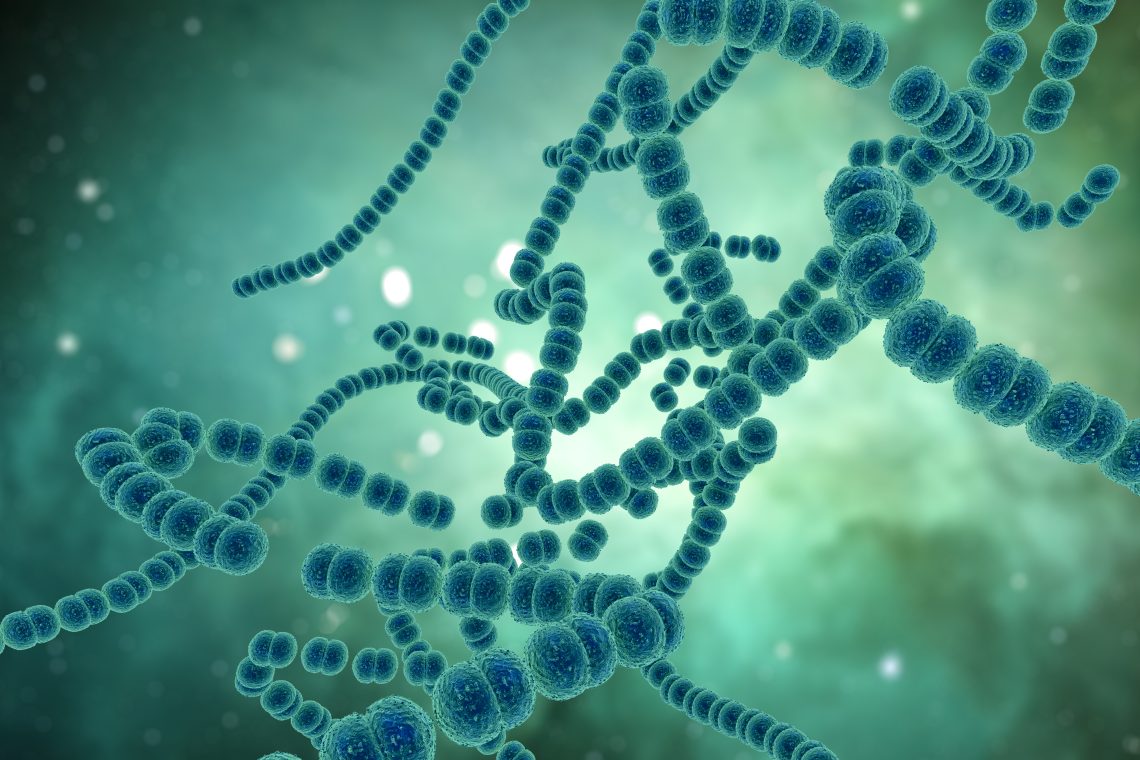

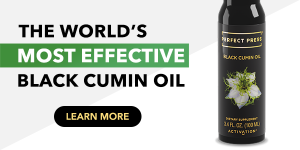





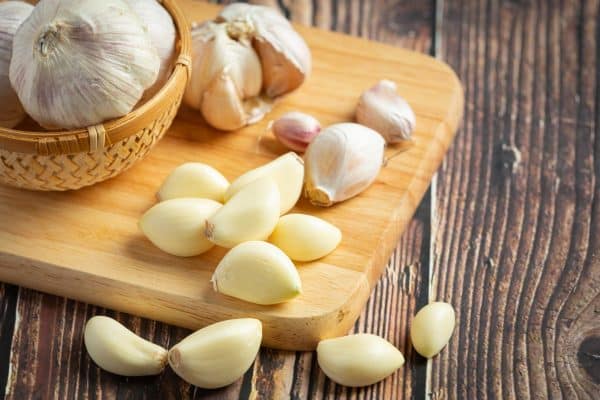
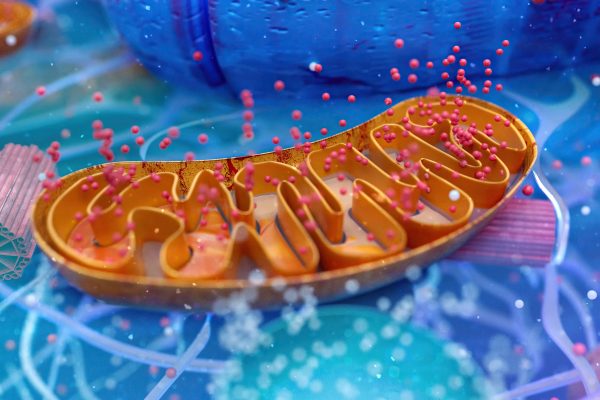

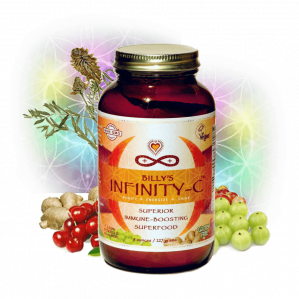



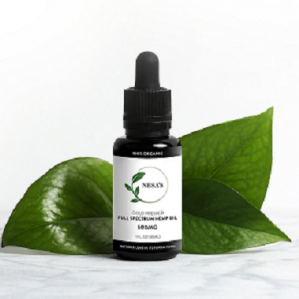











0 Comment